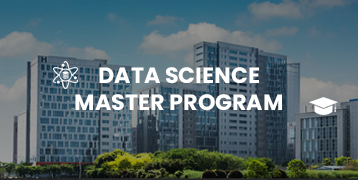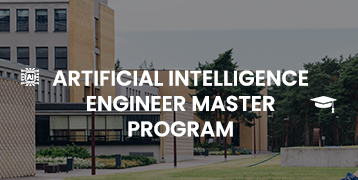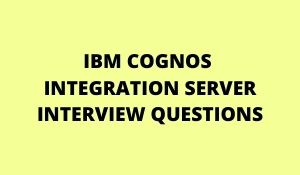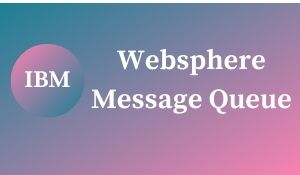
BRIEF ABOUT BOOMI
Dell Boomi AtomSphere is an on-demand multi-tenant cloud integration platform for connecting cloud and on-premises applications and data. The platform permits customers to design cloud-based integration techniques known as Atoms and switch data between cloud and on-premises applications. Each Atom defines what is necessary for the integration. The modern version of Dell Boomi AtomSphere provides various new features, inclusive of a crowd-sourcing testing option called Boomi Assure and a bulk-copy feature that allows organizations to load large volumes of records into a database and increase the number of integration projects that can be centrally managed.
The Boomi Atmosphere allows you to connect any combination of Cloud, SaaS, or on-premises applications without coding. This strategy is configuration-based integration instead of code-based integration.
Boomi Atmosphere integration process is categorized into three phases:
- Build Phase: The initial section where you can design and begin implementing the integration process.
- Deploy Phase: Deployment of the integration system to Boomi Atom. In this phase, Boomi AtomSphere helps two kinds of deployment – Cloud Deployment and On-premise Deployment
- Manage Phase: This is the ultimate segment whereby your operations team can monitor and manage the integration method using a web-based dashboard.
MAIN BENEFITS OF DELL BOOMI
1. Improved choices and data quality: One of the most common challenges that an organization faces is the poor quality of data and Boomi can be used for improving the quality & consistency of the data floating within the enterprise. It helps in assisting the organization’s decisions so that they can bring the desired outcomes for the stakeholders.
2. Accelerate business speed: With the help of an efficient integration system like Dell Boomi, the IT teams of an organization can integrate the individual projects of the organization much quicker than the expected rate. It, in turn, boosts the innovations and operational efficiencies of the business.
3. Elimination of the Silos: Before the introduction of the integration system like Boomi, companies used to face the issues associated with the data silos and integration tools. Dell Boomi’s unified platform allows business organizations to become integrated and perfectly harmonized entities from a siloed environment.
4. A cultural shift in the IT: The integration platforms, like Dell Boomi, have brought drastic changes in the organizational IT culture because of the standard changes in the operational method in the data integration tasks. Enterprise integration systems have generated new insights into other initiatives and additionally have a huge effect on the business.
5. Improvement in the IT efficiencies of the organization: Boomi’s technology based on the low-code model helps the company to reduce the dependency on data integration and assist staff within the organization. This is because lots of the integration load is taken through the business enterprise integration system itself.
6. Multi-skilled developers: Dell Boomi’s system allows business organizations to cope with the data integration tasks of the organization except for any trouble as it is easy to operate the Boomi platform. It additionally eliminates the need for the integration developers to have certain abilities for using the additional Boomi’s capabilities.
| Learn more information from GoLogica “Oracle Integration Cloud Service (OICS) Training“ |
PROS
- Pre-built connectors to almost anything significantly reduce the time to release your integration needs.
- Easy to use development platform with drag&drop features. Non-technical people could build easy integration methods in no time.
- Great user community where you can get quick assistance if needed.
CONS
- If you have more complicated integration requirements, you need to write lots of custom scripting in Javascript or Groovy.
- Every connection kind has a cost. When you run on a low budget, you want to think and have workarounds in your integration’s architecture and design to overcome this.
- Performance can also be an issue with customs requirements in data processing. For example, if you have to process information sequentially, you will see a huge drop in overall performance since Boomi is optimized for parallel processing.
How can Dell Boomi help your business?
Boomi’s pre-built connectors and templates reduce development time, and the time to market is faster compared to the native development with higher performance. Being built on the Cloud, Boomi also approves businesses to scale quickly.
For developing businesses that connect to multiple systems, all integrations are available in a single place. Dell Boomi’s cloud-based solution with operational intelligence helps users monitor integrations from anywhere. Boomi gives data in real-time throughout any combination of cloud-based or on-premise systems and approves users to move data securely in all formats.
ORACLE ICS
The Oracle Integration Cloud Service provides a cloud-based integration platform that can run and manage integration flows. ICS exposes a browser-based UI through which the integration is designed first, then activated, and managed. ICS provides
adapters to easily interact with numerous popular SaaS applications such as Salesforce, Oracle HCM Cloud, Oracle ERP Cloud, Oracle SalesCloud, Service Cloud Right Now, Eloqua, CPQ, Gmail & Google Task, Ever note and Platform Services and technologies like Oracle Database, Oracle Messaging Cloud Service, FTP, SOAP and REST services as well as a collection of Social Media Networks like Twitter, LinkedIn, Facebook. With ICS it is easy to connect to any of these as a target and expose a tailor-made, easy-to-use interface to ICS consumers. Some of the adapters can also be a source for interactions: events in SaaS applications – such as the creation or update of a business object – can trigger ICS to perform an integration flow – pushing data derived from the event to some target.
Related Courses
| Course Name | Enroll Now |
|---|---|
| Oracle Integration Cloud Service (OIC) Training | Enroll Now |
| Oracle Fusion HCM Cloud Training | Enroll Now |
| C++ Training | Enroll Now |
| Oracle SCM Training | Enroll Now |
| ORACLE SQL TRAINING | Enroll Now |
Oracle Integration Cloud Service simplifies how you build integrations in the cloud, it lets the user connect securely to applications and services both in the cloud and on-premises. It helps companies maximize their ROI on the cloud by enabling cloud and on-premise applications to work seamlessly together. Cloud integration is a system of tools and technologies that connects various applications, systems, repositories, and IT environments for the real-time exchange of data and processes. Once combined, the data and integrated cloud services can then be accessed by multiple devices over a network or via the Internet. OICS Cloud integration helps to break down data silos, improve connectivity and visibility, and ultimately optimize business processes. It is a response to the need to share data among cloud-based applications and to unify information components.
ORACLE INTEGRATION (OIC) FEATURES
- Cloud Data Integration Features
- Pre-built connectors
- Connector modification
- Support for real-time and batch integration
- Data quality services
- Data security features
- Monitoring console
PROS
- Quick to market – Integration can be built in a very brief timeframe with fast, defect-free connectivity.
- Rich adapters with effective single-click functionality.
- Connectivity landscape to unique applications.
CONS
- Faster UI
- Mapping – Would like to see the addition of some greater performance and standard functions.
- Performance for long-running threads.
ADVANTAGES OF OICS
- Faster & More Efficient Deployment: Eliminating the need to set up and configure hardware and servers for on-premise applications which would a longer duration of time, sometimes even months to do so, before they even begin writing one line of code for their custom application or deploying a prebuilt application. OICS lets applications get into the hands of testers and end-users nearly as quickly as they can be developed.
- Cost Reduction: The standardized and consolidation of resources as well as the removal of redundant work throughout teams and the fewer elements (servers, storage, network components) in the mix all relate to reduced capital expenditures and hence reduced operating expenditures because of the efficiencies received in managing a consolidated environment.
- Agility & On-Demand Capacity: When application workloads fluctuate, OICS scales in and out to better match supply with demand. Procuring and maintaining on-premises infrastructure and software with such workload-associated fluctuations have been costly and time-consuming.
CONCLUSION
Dell Boomi is a software model to seamlessly connect with your applications, employees, and information. The software program presents a unified platform for end-users to deal with their work techniques using this effective cloud technology. Oracle Integration Cloud Service (ICS) is a simple and powerful integration platform in the cloud to maximize the value of your investments in SaaS and on-premise applications. Providing in-depth and real-time knowledge on different concepts of Oracle ICS, Online training of Oracle ICS course from Gologica will help you gain a better understanding and real-time experience.
👉 Related Articles:
🎯 Understanding OICS(Oracle Integration Service Cloud)
🎯 Oracle Integration Cloud Service(OICS) Interview Questions 2025












